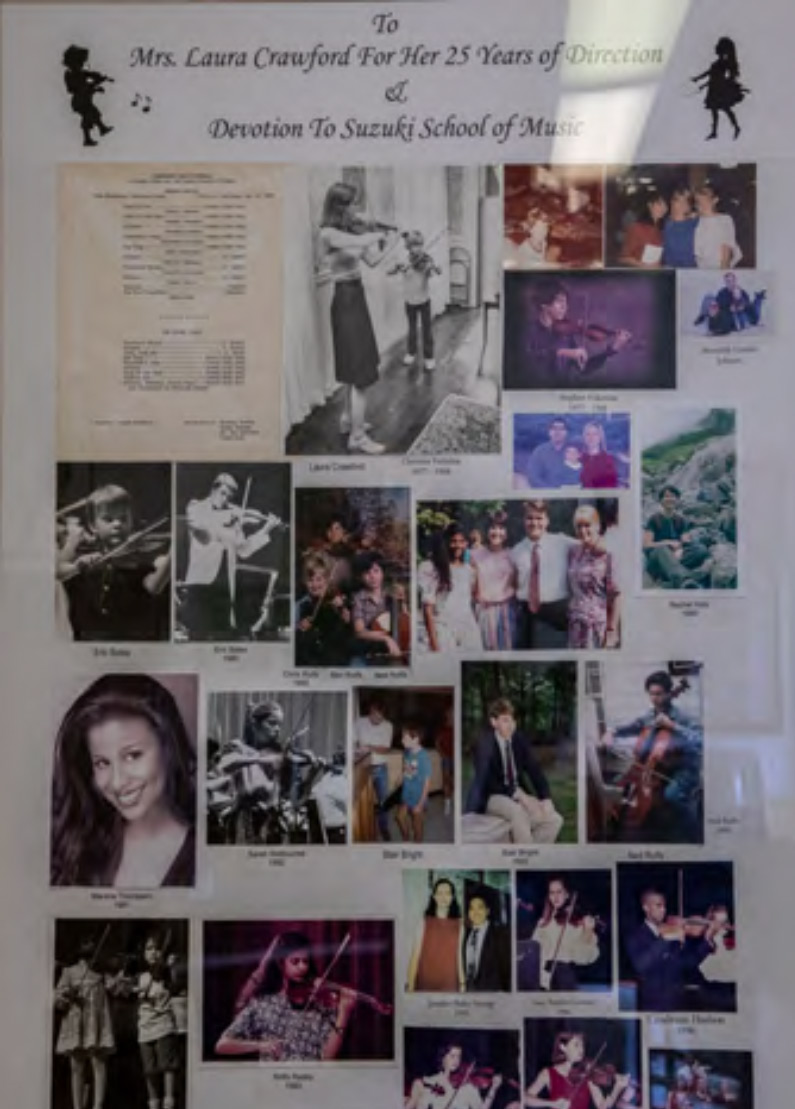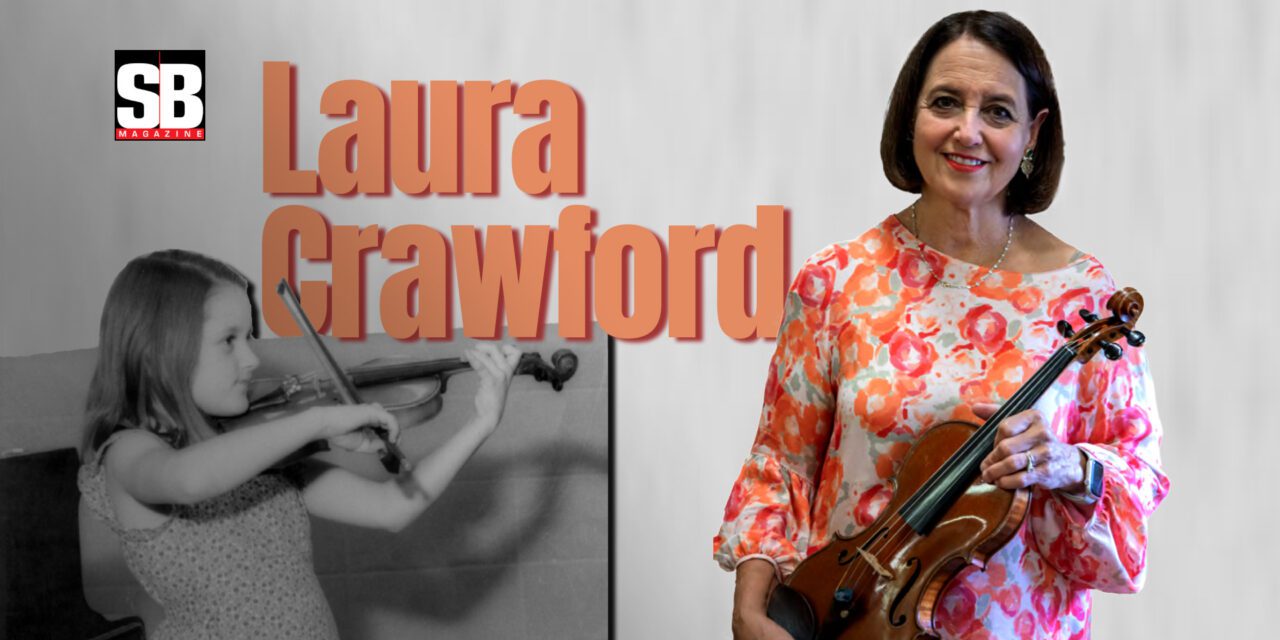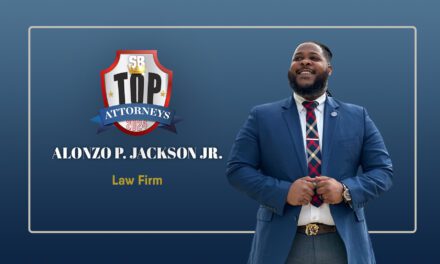Art & Culture
Laura Crawford
by Diane VanHoozer
SB sat down with Laura Crawford to learn more about her passion, her influence, and the reasons behind her success.
Laura Crawford started playing violin with the instruments that her father smuggled out of Austria before Kristallnacht. This eventually led to her calling as a violinist/teacher and the forming of the Centenary Suzuki School in 1977 with just ten students.
Today, the school boasts teaching more than 1500 students, but the influence this has had on families’ lives is unfathomable. Instilling a deep appreciation of music is core to the founder and director, as well as to the other CSS teachers: Charles Regauer, Dan Santelices, Adrienne Gabriel, Elizabeth McShane, Brett Andrews, and Elizabeth Beck.
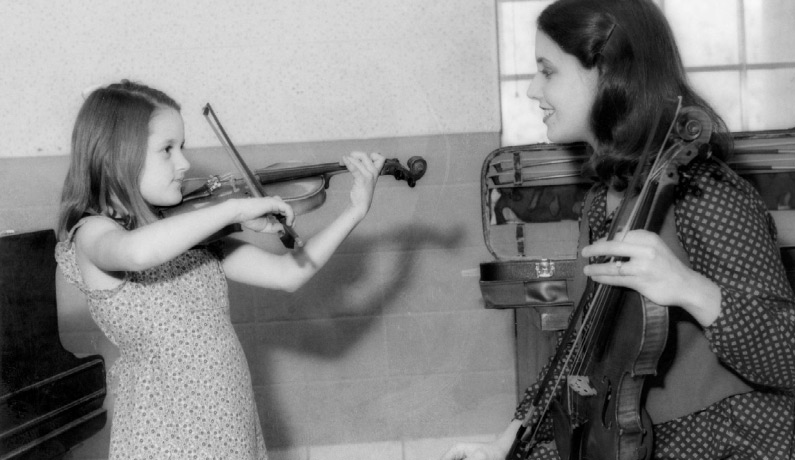
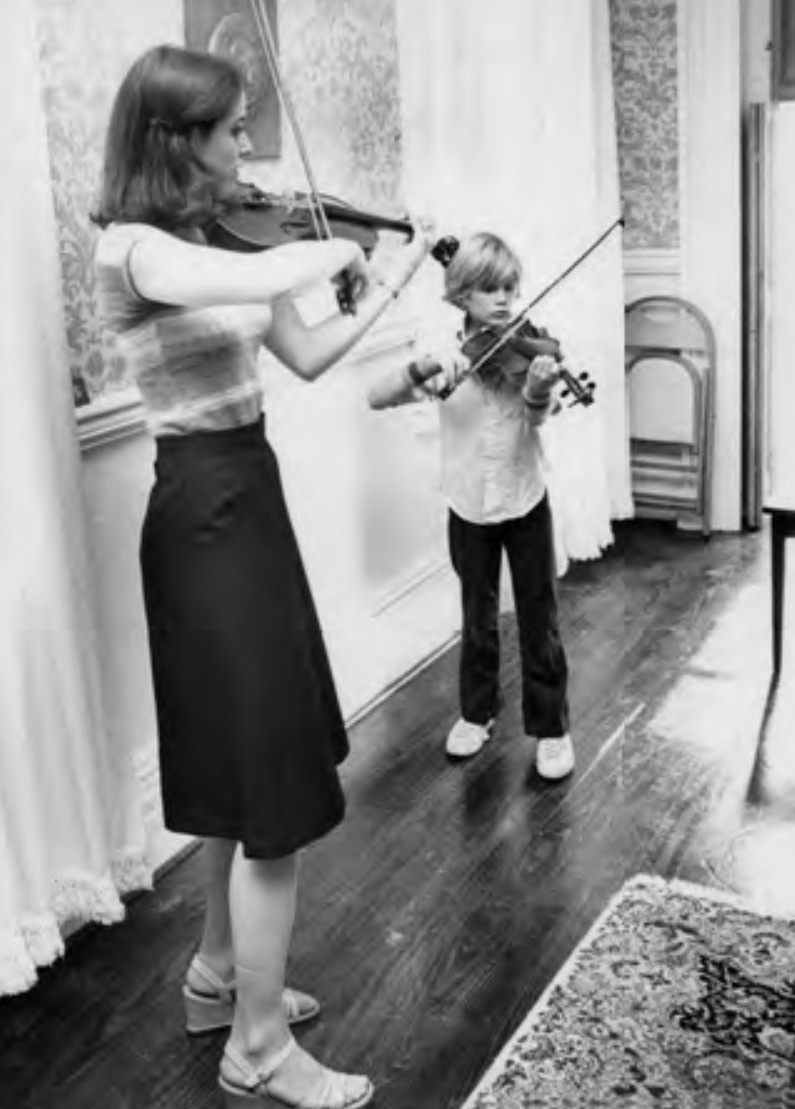
What age do you typically start children?
“We usually start kids in our program at about 4 for girls and 5 for boys. I wish somebody had started me at that age because it’s great to be able to develop so much technique at an early age. Some of our kids at age 12 are playing Mozart concertos.”
How important to you is music education?
“I think it’s crucial. In addition to children learning to express emotion through music, neuroscience research shows that studying music raises your IQ and expands the brain. While many of our Art & Culture Laura Crawford By Diane VanHoozer SBMAG.NET | SEP 2024 39 children become professional musicians later, that’s not our goal. In a recent study, medical schools took 60% of music majors and 40% of biochemistry majors. If children hear beautiful music from a young age and learn to play it, they develop sensitivity, discipline, and endurance. They will become more aware and appreciative of all that is artistic in life. They get beautiful hearts.”
What is the Suzuki method, and how is it different from other methods of teaching music?
“It’s patterned after the way you learn to speak a language. You learned to speak from listening to your parents’ words. Dr. Suzuki thought if you do the same thing with music, and if children hear the music that they’re going to learn to play from an early age, then it’s like the native language. We want them to focus on the correct violin position and be able to learn pieces quickly by ear.”
How would you handle having to tell a parent that maybe their child isn’t suited for music, or have you ever had that happen?
“I’ve never had a child in all these 40-plus years who couldn’t learn to play. Now, some of them are going to go slower and some faster. So rather than tell the student that you’re not suited for this, we would tend to tell the parent if you could practice every day and don’t skip a day, then you’re going to notice an amazing difference. I don’t think we’ve ever told somebody you can’t do this. Our goal is to have them all enjoy music for life. And even though I have 4 sons who all went through the program, only one is really playing now. My oldest was on the board of the New World Symphony in Miami, and my second one is on the Shreveport Symphony board. My third one is the vice-president of The Strand Board, and my youngest is in New York as a professional cellist. So, they all love music, and all musicians need an appreciative audience!”
When all is said and done, what will you cherish most about your life and your influence?
“In addition to my faith in God, I cherish most the love and support of my husband, Ed Crawford, and our four sons, because I couldn’t do any of this without their help. They’ve been so supportive of my love for beautiful music.” If you are interested in learning more about the Centenary Suzuki School, go to www. centenarysuzuki.com to apply for your child to be on the waiting list.
